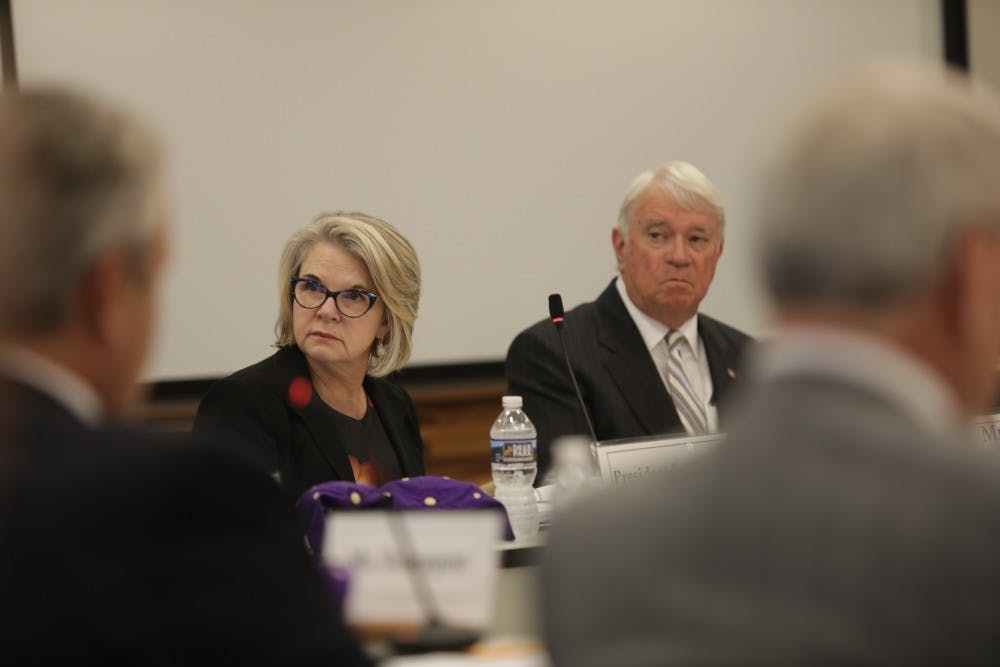As we discussed in an earlier editorial, the Board of Governors has been considering a campus-wide free speech policy that would allow "expulsion of students who repeatedly disrupt freedom of speech or expression on campus.” Last Thursday on Nov. 2, a board committee unanimously approved the policy, which will now go to the BOG next month for a vote.
Originally created after a state measure that called for the University to adopt a policy to “restore and preserve free speech,” the BOG's proposal instead cements the idea that the right to free speech should be protected for a select few and not for all.
Supporters of the legislation brought up the fact that speakers have been shouted down by protesters in the past, and although these actions may be seen as less than desirable, the right to dissent is a right. The same freedom of speech that allows a speaker to stand on a stage and deliver their message allows the audience to shout and protest.
Committee members may feel differently, as the proposal reads: “The right to dissent is the complement of the right to participate in expressive activity, but these rights need not occupy the same forum at the same time.”
Actually, these rights do need to occupy the same forum at the same time. The rights that are given to us all under the Constitution exist anywhere and anytime. While the proposal states that spontaneous, expressive activity that is not disruptive would be allowed, the policy would also give campus administrators the authority to interpret what is considered “materially and substantially” disruptive.
The context in which this policy is being created cannot be ignored. It comes at the heels of the multiple Silent Sam protests and the shutting down of academic centers that were politically inconvenient for the BOG. It is an attempt to eliminate and control unwanted behaviors that are protected under the law by authorizing sanctions toward students and faculty, such as suspension, expulsion, demotion and dismissal.
In an email sent from the Office of Chancellor, dated Aug. 21, the day before the first Silent Sam protests, Chancellor Folt wrote: “Carolina aspires to be a place where we can discuss and express our differences and still come together in a peaceful manner.”
How can Carolina become a place where we can discuss and express our differences if those very expressions can cost us expulsion or dismissal?



